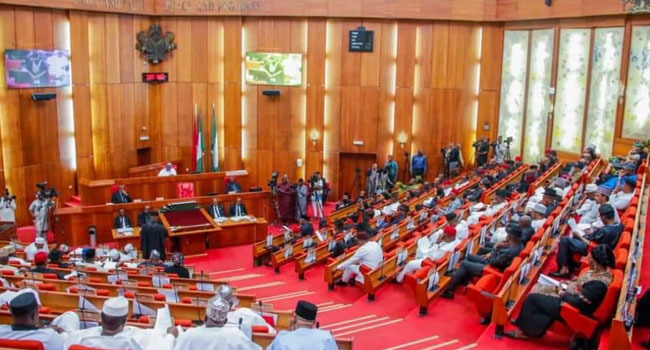The Senate has passed a new insurance bill that empowers the insurance regulator to determine the capitalisation for insurance companies in the country.
When eventually harmonised by the two legislative houses and assented by the president, the new insurance act will replace the current insurance legislation which has been in operation for over two decades without provisions to address contemporary challenges and foster growth and innovation.
According to InsideBusines, the proposed act provides for the increase in capitalisation from the current N2 billion to N10 billion (life assurance), N3 billion to N15 billion (non-life insurance), and N10 billion to N35 billion (reinsurance).
The new minimum capitalisation is necessitated by several factors, including currency depreciation, provisions in the Finance Act 2022, which redefined the composition of capital, inflation, international competitiveness, AfCFTA competitiveness, capital flight due to overreliance on foreign insurance, and emerging risks such as cyber insurance and consumer credit insurance.
The final passage by the legislators followed the consideration and adoption of the recommendations in the report of the Senate Committee on Banking, Insurance, and Other Financial Institutions on the Nigerian Insurance Industry Reform Bill, 2024, presented during plenary by its chairman, Senator Adetokunbo Abiru (APC, Lagos East).
The passed bill which will repeal the Insurance Act, CAP. 127 Laws of the Federal Republic, 2004 when it becomes a law, consolidates the Marine Insurance Act, 2004; the National Insurance Corporation of Nigeria Act, 2004; and the Nigeria Reinsurance Corporation Act, 2004. The bill enacts the Nigeria Insurance Industry Reform Act, 2024 to provide a comprehensive legal and regulatory framework for Nigeria’s insurance businesses and related matters.
Senator Tokunbo Abiru in his presentation to the Senate stated that the insurance regulator in determining the required risk-based capital, shall consider the capital for insurance risk, market risk, and operational risk and apply such capital charges on assets and liabilities as shall be determined from time to time.
Like the current insurance law, the new bill approved by the senate provides that the minimum capitalisation be deposited with the Central Bank of Nigeria (CBN).
In his contribution, Senator Jimoh Ibrahim (APC, Ondo South) expressed concerns about the proposed N35 billion minimum capital requirements for reinsurance businesses, suggesting that the status quo be maintained given the current economic situation.
However, Deputy Senate President Senator Barau Jibrin emphasised the importance of passing the bill to align the insurance industry with contemporary economic realities for the nation’s benefit.
He said: “This Act, once it receives concurrence from the House of Representatives and assent from the President, will significantly contribute to shaping our economy for the better. Economies are dynamic and constantly changing, so it is incumbent upon the authorities of every nation to update their legislation to align with contemporary realities. This is precisely what the passage of this legislation aims to achieve: to restructure the entire insurance ecosystem in line with current realities.
“I am confident that the country will benefit greatly when the law is passed.”
Meanwhile, the National Insurance Commission (NAICOM) has lauded the passage of the new Consolidated Insurance Bill by the Upper Chamber of the National Assembly with optimism that the legislation will unlock the insurance sector’s growth, prosperity, and potential. The Commission believes that the bill is a game changer for Nigeria’s insurance industry, with a highly positive impact on the contribution of the sector to the country’s GDP and economy as a whole.
By consolidating existing insurance laws, the new legislation marks a new era in the ongoing efforts to strengthen Nigeria’s insurance industry with a comprehensive framework for regulating all types of insurance businesses and ensuring a more robust and effective industry.
The commission believes the bill marks a significant triumph for Nigeria’s insurance industry, tackling the long-standing challenge of low insurance penetration in the country. The new legislation addresses the industry’s need for a more robust legal and regulatory framework, enabling it to compete favourably in the African insurance market and globally.
The newly passed bill introduces several pivotal provisions to fortify Nigeria’s insurance industry. Key highlights of the legislation include:

